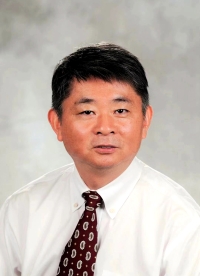
Title: Deep Learning based Wireless Resource Allocation
Presenter: Geoffrey Ye Li, School of ECE, Georgia Tech
时间:2020年1月17日(周五)上午10:00
地点:无线谷4409会议室
Abstract: Judicious resource allocation is critical to mitigating interference, improving network efficiency, and ultimately optimizing wireless network performance. The traditional wisdom is to explicitly formulate resource allocation as an optimization problem and then exploit mathematical programming to solve it to a certain level of optimality. However, as wireless networks become increasingly diverse and complex, such as high-mobility vehicular networks, the current design methodologies face significant challenges and thus call for rethinking of the traditional design philosophy. Meanwhile, deep learning represents a promising alternative due to its remarkable power to leverage data for problem solving. In this talk, I will present our research progress in deep learning based wireless resource allocation. Deep learning can help solve optimization problems for resource allocation or can be directly used for resource allocation. We will first present our research results in using deep learning to solve linear sum assignment problems (LSAP) and reduce the complexity of mixed integer non-linear programming (MINLP), and introduce graph embedding for wireless link scheduling. We will then discuss how to use deep reinforcement learning directly for wireless resource allocation with application in vehicular networks.
Biography: Dr. Geoffrey Li is a Professor with the School of Electrical and Computer Engineering at Georgia Institute of Technology. He was with AT&T Labs – Research for five years before joining Georgia Tech in 2000. His general research interests include statistical signal processing and machine learning for wireless communications. In these areas, he has published around 500 referred journal and conference papers in addition to over 40 granted patents. His publications have cited by around 40,000 times and he has been listed astheWorld’s Most Influential Scientific Mind,also known as aHighly Cited Researcher, by Thomson Reuters almost every year since 2001. He has been an IEEE Fellow since 2006. He received 2010IEEE ComSoc Stephen O. Rice Prize Paper Award,2013IEEE VTSJames Evans Avant Garde Award, 2014 IEEE VTS Jack Neubauer Memorial Award, 2017 IEEE ComSoc Award for Advances in Communication,2017 IEEE SPS Donald G. Fink Overview Paper Award, and 2019 IEEE ComSocEdwin Howard Armstrong Achievement Award.He also won the2015Distinguished Faculty Achievement Award from theSchool of Electrical and Computer Engineering,Georgia Tech.

